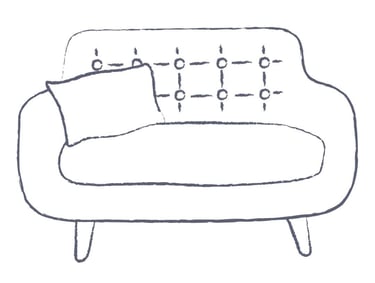
Education & Research
What is Hypnotherapy?
Hypnotherapy is a scientifically validated therapeutic method designed to induce significant and positive changes in subconscious behaviours and habits. This practice goes beyond merely altering patterns; it layers them with empowering beliefs, enabling individuals to overcome self-sabotaging obstacles and achieve personal growth.
The Role of Hypnosis in Therapy
Certified hypnotherapists utilise hypnosis to guide individuals into a focused state of relaxation, where they are more open to suggestions and therapeutic interventions. This technique is gaining wider acceptance in mainstream healthcare due to its proven efficacy.
Benefits and Applications of Hypnotherapy
Studies have validated clinical hypnotherapy’s effectiveness in addressing a variety of conditions, including:
Stress: Reducing stress levels and promoting relaxation.
Anxiety: Managing anxiety symptoms and improving emotional regulation.
Irritable Bowel Syndrome (IBS): Alleviating gastrointestinal discomfort and improving gut health.
Chronic Pain: Reducing pain perception and enhancing pain management strategies.
Recognition by Professional Organisations
The American Psychological Association (APA) promotes hypnotherapy as a beneficial therapy for managing pain, anxiety, and mood disorders. It also supports its use in helping individuals change negative habits, such as smoking. The Australian Cancer Council acknowledges hypnotherapy as a clinically tested complimentary therapy with good results for helping people cope with pain, anxiety & nausea related to cancer treatment.
Start Your Journey with Hypnotherapy
Discover how hypnotherapy can help you make lasting, positive changes in your life. Our certified and registered clinical hypnotherapist provides personalised sessions tailored to your unique needs. Contact us today to learn more and schedule a consultation.


What is NLP?
Neuro-Linguistic Programming (NLP) harnesses the power of language to influence changes in thoughts and behaviours. It aims to uncover and modify unconscious biases or limitations within an individual's worldview, promoting personal growth and self-awareness.
Core Principles of NLP
At its core, NLP serves as a versatile tool for personal development by fostering essential skills such as:
Self-Reflection: Enhancing self-awareness and insight.
Confidence: Building self-esteem and self-belief.
Effective Communication: Improving interpersonal skills and emotional intelligence.
Therapeutic Applications of NLP
NLP has garnered attention as a therapeutic approach for addressing various psychological disorders, including:
Phobias: Reducing irrational fears and anxieties.
Depression: Alleviating symptoms and promoting a positive mindset.
Generalized Anxiety Disorder (GAD): Managing persistent anxiety and stress.
Post-Traumatic Stress Disorder (PTSD): Healing trauma and improving emotional resilience.
Evidence of NLP's Effectiveness
A 2009 study by Stipancic, Renner, Schutz, and Dond, published in the journal Counselling and Psychotherapy Research, showed promising results. Psychotherapy patients who underwent NLP interventions experienced improvements in psychological symptoms and overall quality of life.
How NLP Works
NLP delves into the intricate relationship between thoughts and behaviour. By dissecting the mechanisms of information processing, NLP empowers individuals to:
Take Control of Thoughts and Emotions: Transforming from passive observers to active participants in their own lives.
Reframe Negative Beliefs: Changing limiting beliefs and thought patterns.
Enhance Personal Effectiveness: Achieving goals and improving performance.
Start Your Journey with NLP
Discover how NLP can help you make meaningful changes in your life. Our certified practitioner provides targeted sessions tailored to your unique needs. Contact us today to learn more and schedule a consultation.


How is Clinical Hypnotherapy Different from Stage Hypnosis?
When discussing hypnosis, it's essential to address the elephant in the room: stage hypnosis. Stage hypnosis is an entertainment tool that exploits suggestibility and compliance behaviour to amuse audiences (Thompson, 2019).
Stage Hypnosis vs. Clinical Hypnotherapy
Stage Hypnosis:
Purpose: Entertainment and amusement.
Techniques: Uses suggestibility and compliance to create dramatic effects.
Environment: Performed in front of an audience.
Objective: To entertain by making participants perform unusual or humorous acts.
Clinical Hypnotherapy:
Purpose: Therapeutic intervention to facilitate positive change.
Techniques: Aims to achieve a theta brainwave state through relaxation techniques. Once in a hypnotic, meditative-like theta state, interventions are applied, typically in the form of suggestions.
Environment: Conducted in a private, therapeutic setting by a trained professional.
Objective: To address various conditions and improve mental and physical well-being.
The Clinical Hypnotherapy Process
Clinical hypnotherapy involves a formalized process that includes several stages:
Induction: Guiding the individual into a relaxed state.
Deepener: Enhancing the depth of the hypnotic state.
Intervention: Applying therapeutic suggestions or techniques.
Post-Hypnotic Suggestions: Providing suggestions that will take effect after the session.
Disengagement: Gently bringing the individual out of the hypnotic state.
Hypnosis as an Alternative to General Anaesthesia
You might be surprised to learn that hypnosis is sometimes used as an alternative to general anaesthesia. In such cases, a patient is administered mild sedation (e.g., local aesthetic) while the hypnotic process is applied. Patients are guided to focus on their inner world, employ specific breathing techniques, and remain calm and relaxed throughout the procedure.
Discover the Therapeutic Benefits of Hypnotherapy
Clinical hypnotherapy is a powerful tool for facilitating positive change and improving well-being. Contact us today to learn more about how hypnotherapy can benefit you and to schedule a consultation with our experienced hypnotherapist.


Why Does Hypnosis Make you More Suggestable?
Research suggests that during hypnotic induction, activity in the frontal cortex of the brain lessens. This area of the brain is responsible for attention, planning, and decision-making. As a result, the mind becomes less analytical and more receptive.
Brain Activity and Hypnosis
Other areas of the brain responsible for filtering and integrating information become more engaged during hypnosis. This heightened engagement allows the brain to:
Take in Information More Easily: The mind becomes more open to receiving new information.
Apply Information More Effectively: Enhanced ability to integrate and utilize new information.
Amplify Information: Increased focus on specific suggestions or ideas.
Research on Hypnotic Suggestibility
A study conducted in 2006 found that the brains of people in a hypnotic state respond to pleasant memories as if the experience were real (Faymonville, Boly, & Laureys, 2006). Clinical hypnotherapists utilise this phenomenon to create new neural pathways, promoting desired behaviours and positive change.
Experience Hypnosis Before Your Appointment
Curious to experience hypnosis before booking an appointment? Marisa has created a short hypnosis experience for clients wishing to 'dip their toes in' before their session. You can find it here.
Discover the Benefits of Hypnotherapy
Explore how hypnotherapy can make you more suggestible to positive change and improve your well-being. Contact us today to learn more.


What Happens to the Human Brain During Hypnosis?
During hypnosis, the human brain undergoes several beneficial changes that enhance emotional regulation, stress resilience, and overall well-being.
Key Brain Changes During Hypnosis
Reduced Amygdala Activity:
Benefit: Decreased emotional reactivity.
Effect: Enables you to perceive and respond to stressors in a calmer, more controlled manner.
Increased Theta Brainwave Activity:
Benefit: Associated with creative flow and deep relaxation.
Effect: Bypasses conscious resistance and accesses deeper layers of the mind.
Regulated Prefrontal Cortex (PFC) Activity:
Benefit: Involves executive functions, decision-making, and emotional regulation.
Effect: Enhances connectivity with other brain regions, promoting greater emotional regulation and resilience to stress.
Support for the Autonomic Nervous System (ANS):
Benefit: Controls the body's stress response.
Effect: Activates parasympathetic activity (rest and digest), generating feelings of relaxation.
Downregulation of Sympathetic Nervous System (SNS) Activity:
Benefit: Reduces fight or flight response.
Effect: Rebalances the ANS, contributing to the reduction of physiological stress symptoms such as heart rate, blood pressure, and cortisol levels.
Rewiring the Brain's Structure:
Benefit: Increases grey matter volume in regions associated with emotional regulation and self-control.
Effect: Enhances the brain's ability to manage emotions and maintain self-control.
Experience the Benefits of Hypnotherapy
Understanding these changes can help you appreciate the profound impact hypnotherapy can have on your mental and physical health. Contact us today to learn more and schedule your consultation with our experienced hypnotherapist.


Hypnotherapy for Stress Relief
Stress is an inevitable part of life, but effective management is crucial for maintaining overall well-being. Hypnotherapy has been shown to be a powerful tool for stress reduction. A 2020 study by Olendzki et al. found a significant decrease in perceived distress among participants who underwent hypnotherapy.
Benefits of Hypnotherapy for Stress-Related Issues
Hypnotherapy has been successfully used to address a variety of stress-related issues, including:
Hypertension: Reducing high blood pressure through relaxation techniques.
Muscle Tension: Alleviating physical tension and promoting relaxation.
Digestive Issues: Easing stress-induced gastrointestinal problems.
Depression: Complementing other treatments to improve mood and reduce symptoms.
Headaches: Managing stress-induced headaches and migraines.
Anxiety: Reducing anxiety levels and preventing anxiety attacks.
Insomnia: Improving sleep quality by addressing underlying stressors.
Weight Gain: Helping to manage stress-related eating behaviours.
Panic Attacks: Reducing the frequency and severity of panic episodes.
Intense Sympathetic Nervous System Responses: Calming the 'fight or flight' response.
Anger: Managing and reducing anger and irritability.
Irritability: Promoting a calmer, more balanced emotional state.
Inability to Relax: Teaching relaxation techniques to ease tension.
Overactive Thinking: Quieting the mind and reducing mental clutter.
Stress Eating: Developing healthier coping mechanisms for stress.
How Hypnotherapy Works
Engaging in hypnotherapy helps you:
Identify and Address Stress Triggers: Learn to recognize and effectively respond to the sources of your stress.
Develop and Apply Strategies: Acquire practical techniques to manage stress in everyday situations.
Regain Emotional Control: Enhance your ability to stay calm and composed in stressful scenarios.
Improve Self-Esteem: Build confidence and a positive self-image, reducing stress-related self-doubt.
Manage Stressful Situations: Gain the skills to navigate and mitigate stressors more effectively.
Start Your Journey to Stress Relief Today
Discover how hypnotherapy can transform your approach to stress management. Our experienced therapists are here to guide you through personalized sessions tailored to your unique needs. Contact us today to schedule a consultation and take the first step towards a calmer, more balanced life.


Hypnotherapy for Anxiety
Anxiety can significantly impact daily life, but hypnotherapy offers a powerful tool for managing and alleviating anxiety symptoms. When combined with other therapeutic approaches, such as Cognitive-Behavioral Therapy (CBT), hypnotherapy has been found to enhance the management of anxiety disorders and phobias (Golden, 2012).
Benefits of Hypnotherapy for Anxiety-Related Issues
Hypnotherapy has been successfully used to address a variety of anxiety-related issues, including:
Public Speaking Anxiety: Overcoming the fear of speaking in front of groups.
Generalized Anxiety Disorder: Reducing overall anxiety and improving daily functioning.
Test and Exam Anxiety: Enhancing focus and calmness during exams.
Fear of Flying: Managing the fear associated with air travel.
School Avoidance: Helping students cope with anxiety related to school.
Interview Anxiety: Boosting confidence and reducing stress during job interviews.
Agoraphobia: Reducing the fear of open or crowded spaces.
Sexual Performance Anxiety: Addressing anxiety that affects sexual performance.
Other Fears and Phobias: Treating a wide range of specific fears.
Negative Thoughts: Replacing negative thinking patterns with positive ones.
Excessive Worry: Reducing chronic worrying and promoting peace of mind.
Fearful Thoughts: Managing persistent and distressing thoughts.
Rumination: Breaking the cycle of overthinking and mental loops.
Destructive Behaviours: Changing behaviours that are harmful or self-sabotaging.
How Hypnotherapy Works for Anxiety
By addressing anxiety through hypnotherapy, you can:
Understand the Root Causes and Triggers: Gain insight into what triggers your anxiety.
Develop Tools to Rewire Neural Pathways: Learn techniques that help reprogram your brain's response to anxiety.
Cultivate Desired States of Mind: Foster mental states that support calmness and resilience in any situation.
Start Your Journey to Overcoming Anxiety Today
Discover how hypnotherapy can help you take control of your anxiety. Our skilled therapists are here to provide personalized sessions tailored to your unique needs. Contact us today to schedule a consultation and begin your journey towards a more peaceful, confident life.


Hypnotherapy for Trauma
Trauma can leave lasting imprints on the mind and body, affecting an individual's emotional and psychological well-being. Hypnotherapy has emerged as an effective tool for addressing trauma by facilitating deep healing and promoting recovery.
How Hypnotherapy Helps with Trauma
Hypnotherapy provides a safe and supportive environment where individuals can safely explore and re-process traumatic experiences. It works by:
Reducing Emotional Distress:
Benefit: Hypnosis helps calm the nervous system, reducing feelings of fear and anxiety.
Effect: Individuals feel more relaxed and better able to confront traumatic memories.
Rewiring Negative Thought Patterns:
Benefit: Hypnotherapy encourages the development of positive coping mechanisms.
Effect: Replaces negative thought patterns with healthier, more constructive ones.
Accessing the Subconscious Mind:
Benefit: Trauma often resides in the subconscious, influencing behaviour and emotions.
Effect: Hypnosis allows for the exploration and reprocessing of these deep-seated memories.
Promoting Emotional Release:
Benefit: Facilitates the release of pent-up emotions associated with trauma.
Effect: Individuals experience a sense of relief and emotional freedom.
Conditions Addressed by Hypnotherapy
Hypnotherapy has been successfully used to address a variety of trauma-related issues, including:
Childhood Trauma: Assists in healing deep-rooted emotional wounds from early life experiences.
Emotional Abuse: Aids in overcoming the psychological impact of abusive relationships.
Sexual Assault: Supports survivors in reclaiming their sense of safety and self-worth.
Accidents and Injuries: Helps individuals cope with the psychological aftermath of physical trauma.
Grief and Loss: Assists in processing the intense emotions associated with significant loss.
Experience Healing with Hypnotherapy
Hypnotherapy offers a path to recovery for those struggling with the impact of trauma. By addressing the root causes and facilitating deep emotional healing, hypnotherapy can help you reclaim your life and well-being. Contact us today to learn more and schedule your consultation with our compassionate and experienced hypnotherapists.


Hypnotherapy for Alcohol Issues
Overcoming alcohol-related challenges can be complex, but clinical hypnotherapy has been shown to support individuals in reducing alcohol consumption, changing habits, and addressing underlying triggers. Research suggests that hypnotherapy can be an effective intervention, particularly when combined with other therapeutic approaches.
The Evidence: How Hypnotherapy Supports Alcohol Reduction
Several studies have explored the impact of hypnotherapy on alcohol-related issues, demonstrating promising results:
Reducing Alcohol Consumption: A study by Malinoski and Lynn (1999) found that participants who underwent hypnotherapy for alcohol use showed a significant reduction in consumption and an increased ability to resist cravings.
Addressing Underlying Emotional Triggers: Research by Araoz (1995) highlights how hypnotherapy helps individuals process emotional stressors that contribute to alcohol dependency, fostering healthier coping mechanisms.
Enhancing Self-Control and Motivation: A study by Banyai et al. (1993) revealed that individuals who engaged in hypnotherapy reported improved self-efficacy and motivation to change their drinking patterns.
Supporting Long-Term Behavioral Change: Montgomery, Schnur, and Kravits (2012) found that hypnotherapy contributed to lasting behavioral adjustments, helping individuals sustain reduced alcohol intake over time.
Benefits of Hypnotherapy for Alcohol-Related Issues
Engaging in hypnotherapy can help individuals:
Identify and Reprogram Subconscious Patterns: Address the deep-rooted beliefs and triggers that drive alcohol use.
Strengthen Willpower and Self-Control: Reinforce positive habits and diminish cravings.
Manage Stress and Emotional Triggers: Develop healthier responses to stress, anxiety, or social pressures that may lead to alcohol use.
Enhance Confidence in Sobriety or Moderation Goals: Foster a mindset that supports long-term positive change.
Take the First Step Toward Positive Change
If you're ready to explore how hypnotherapy can support you in reducing alcohol consumption or changing your relationship with drinking, we’re here to help. Contact us today to schedule a consultation and take the first step toward a healthier, more empowered future.


Hypnotherapy for Pain
Pain can significantly affect your quality of life, but hypnotherapy offers a powerful, non-pharmaceutical approach to pain management. A 2006 study by Faymonville et al. found that hypnotised volunteers were up to 50% more capable of handling painful stimuli. The study revealed that when activity in the anterior cingulate cortex is dampened (as occurs in a hypnotic state), the link between emotional and behavioural responses to sensory stimuli is reduced, effectively switching off pain signals.
Benefits of Hypnotherapy for Pain Management
Hypnotherapy has been successfully used to address a variety of pain-related issues, including:
Emotional Response to Pain: Managing the emotional distress associated with pain.
Headaches: Reducing the frequency and intensity of headaches and migraines.
Increasing Perceived Pain Threshold: Enhancing the ability to tolerate pain.
Lowering Perceived Pain Response: Reducing the sensation of pain.
Pharmaceutical-Free Pain Management: Offering a natural alternative to medication.
Living with Chronic Pain: Improving the quality of life for those with chronic pain conditions.
How Hypnotherapy Works for Pain
By addressing your relationship with pain through hypnotherapy, you can:
Experience Emotional Release: Let go of the emotional burden that often accompanies chronic pain.
Learn New Tools: Acquire techniques to manage and reduce pain naturally.
Minimise Discomfort: Decrease the intensity of pain sensations.
Achieve Improved Quality of Life: Live more comfortably and pursue your goals with less pain interference.
Start Your Journey to Pain Relief Today
Discover how hypnotherapy can help you manage pain more effectively. Our experienced therapist provides personalised sessions tailored to your unique needs. Contact us today to schedule a consultation and take the first step towards a more comfortable, pain-free life.


Hypnotherapy for Emotional Regulation
Emotional regulation is essential for maintaining mental well-being, yet many individuals struggle with managing stress, anxiety, frustration, or overwhelming emotions. Clinical hypnotherapy has been shown to be an effective tool in improving emotional regulation by rewiring subconscious patterns, reducing reactivity, and fostering inner calm.
The Evidence: How Hypnotherapy Supports Emotional Regulation
Research has demonstrated the effectiveness of hypnotherapy in helping individuals develop healthier emotional responses and improve self-regulation:
Reducing Emotional Reactivity: A study by Elkins et al. (2006) found that hypnotherapy significantly reduced emotional distress and increased the ability to manage negative emotions effectively.
Enhancing Self-Control and Impulse Regulation: Research by Holroyd (2003) suggests that hypnosis strengthens self-regulation mechanisms, making it easier to respond calmly to challenging situations.
Lowering Stress and Anxiety Levels: A meta-analysis by Hammond (2010) found that clinical hypnotherapy was highly effective in reducing anxiety, a key factor in emotional dysregulation.
Rewiring Negative Thought Patterns: A study by Spiegel et al. (2013) highlighted how hypnotherapy helps reframe negative emotions, promoting more balanced and positive thinking.
How Hypnotherapy Supports Emotional Well-Being
Engaging in hypnotherapy can help individuals:
Identify and Reprogram Emotional Triggers: Understand the subconscious origins of emotional responses and shift limiting beliefs.
Develop Greater Emotional Resilience: Learn techniques to navigate emotions with confidence and stability.
Reduce Stress and Overwhelm: Access deep relaxation to calm the nervous system and restore balance.
Enhance Self-Awareness and Mindfulness: Strengthen the ability to observe emotions without becoming overwhelmed by them.
Improve Emotional Expression and Communication: Foster healthier ways to express emotions in relationships and daily life.
Take the First Step Toward Emotional Balance
If you’re ready to gain control over your emotions and experience greater inner peace, hypnotherapy can help. Contact us today to schedule a consultation and begin your journey toward emotional well-being.


Hypnotherapy for Smoking & Vaping
Quitting smoking can be challenging, but hypnotherapy offers an effective tool to help you achieve a smoke-free life. Although the exact mechanisms are still debated, research suggests that hypnotherapy can either strengthen the will to quit or reduce the desire to smoke (Barnes, McRobbie, Dong, Walker, & Hartmann-Boyce, 2019).
Benefits of Hypnotherapy for Smoking Cessation
Hypnotherapy has been successfully used to address various aspects of smoking cessation, including:
Understanding the Role of Smoking: Identifying the underlying reasons for smoking.
Breaking the Smoking Habit: Disrupting the patterns that sustain the habit.
Improving Health Outcomes: Reducing health risks associated with smoking.
Boosting Confidence in Ability to Quit: Enhancing self-belief and determination.
Developing a Proper Plan: Creating a structured approach to quitting.
Increasing Self-Esteem: Building confidence and self-worth.
Enhancing Stress Responses: Learning healthier ways to manage stress.
Building Support Tools: Developing strategies and tools to support the quitting process.
How Hypnotherapy Works for Smoking Cessation
By addressing your smoking habits through hypnotherapy, you can:
Identify Reasons to Quit: Understand your personal motivations for making this life-affirming change.
Plan Your Approach: Develop a clear and actionable plan to quit smoking.
Learn New Tools: Acquire techniques to manage cravings and withdrawal symptoms.
Minimize Discomfort: Reduce the discomfort associated with quitting.
Achieve Your Goals: Successfully transition to a smoke-free life.
Start Your Journey to a Smoke-Free Life Today
Discover how hypnotherapy can help you quit smoking for good. Our experienced therapists provide personalized sessions tailored to your unique needs. Contact us today to schedule a consultation and take the first step towards a healthier, smoke-free life.


Hypnotherapy for Motivation: Unlock Your Full Potential
Motivation is the driving force behind personal and professional success, yet many individuals struggle with procrastination, self-doubt, or a lack of direction. Clinical hypnotherapy has been shown to enhance motivation by reshaping subconscious beliefs, increasing focus, and reinforcing a positive mindset.
The Evidence: How Hypnotherapy Enhances Motivation
Research has demonstrated the effectiveness of hypnotherapy in improving motivation, goal achievement, and overall drive:
Strengthening Goal Commitment: A study by Hammer et al. (1998) found that individuals who underwent hypnotherapy showed increased commitment to their personal and professional goals.
Enhancing Self-Belief and Confidence: Research by Kirsch et al. (1995) suggests that hypnosis strengthens self-efficacy, a key factor in maintaining motivation and perseverance.
Overcoming Procrastination: A study by Stanton (2016) demonstrated that hypnotherapy helps reframe subconscious resistance to tasks, leading to improved productivity and action-taking.
Boosting Performance and Mental Focus: A study by Baker and Nash (2008) found that hypnosis improved concentration and performance in individuals aiming to achieve personal or professional goals.
How Hypnotherapy Supports Motivation and Drive
Hypnotherapy helps individuals:
Break Through Mental Blocks: Overcome self-doubt, fear of failure, and limiting beliefs.
Increase Focus and Discipline: Strengthen the ability to stay on track with goals.
Reprogram Negative Thought Patterns: Replace self-sabotaging behaviors with empowering beliefs.
Enhance Energy and Drive: Cultivate a mindset that fuels persistence and enthusiasm.
Develop a Success-Oriented Mindset: Align subconscious patterns with personal and professional aspirations.
Take the First Step Toward a Motivated Future
If you’re ready to unlock your full potential and take action toward your goals, hypnotherapy can help. Contact us today to schedule a consultation and start building unstoppable motivation.


Hypnotherapy for Self-Improvement & Personal Development
Hypnotherapy and Neuro-Linguistic Programming (NLP) are powerful tools for self-development and personal discovery. These approaches can help you unlock your full potential and make meaningful changes in your life.
Benefits of Hypnotherapy for Self-Improvement
Hypnotherapy has been successfully used to address a wide range of individual improvement issues, including:
Poor Self-Esteem: Building a positive self-image and confidence.
Lack of Confidence: Enhancing your belief in your abilities.
Low Motivation: Boosting drive and enthusiasm for personal goals.
Self-Limiting Beliefs: Overcoming beliefs that hold you back.
Unhealthy Habits: Breaking free from detrimental routines.
Destructive Behaviour: Changing harmful actions and patterns.
Outsourcing Praise: Valuing your own achievements without external validation.
Seeking Approval from Others: Developing self-approval and independence.
Poor Relationship with ‘Self’: Cultivating self-love and acceptance.
Self-Sabotage: Stopping behaviours that undermine your success.
Lack of Empathy: Enhancing emotional intelligence and empathy.
Ineffective Personal Boundaries: Establishing and maintaining healthy boundaries.
Inappropriate/Excessive Emotional Responses: Regulating emotional reactions.
Struggling to See Goals Through: Increasing persistence and follow-through.
Self-Doubt: Building confidence in your decisions and abilities.
Difficulty Making and Sticking to Choices: Improving decision-making skills.
Overthinking: Quieting the mind and reducing mental clutter.
Feeling ‘Stuck’ in Life: Finding direction and purpose.
Feelings of Inadequacy: Recognising and celebrating your worth.
Feeling Unworthy: Developing a sense of self-worth.
Fear of Failure or Rejection: Overcoming fears that hinder progress.
Perfectionism: Accepting imperfections and striving for balance.
People-Pleasing: Learning to prioritise your own needs.
Dissatisfaction with Life: Enhancing overall life satisfaction.
Achievement Addiction: Finding balance and contentment beyond achievements.
Negative Thoughts: Replacing negativity with positive thinking.
Poor Communication: Improving interpersonal communication skills.
Dysfunctional Relationships: Building healthier, more fulfilling relationships.
How Hypnotherapy Works for Personal Development
By addressing the factors that hold you back, hypnotherapy can help you:
Increase Confidence: Boost your self-assurance in various aspects of life.
Eliminate Bad Habits: Break free from habits that impede your progress.
Heighten Performance: Improve your performance in personal and professional areas.
Overcome Barriers: Conquer obstacles that prevent you from reaching your goals.
Remove Fears and Phobias: Alleviate fears that restrict your potential.
Support Health and Well-Being: Enhance your overall health and well-being.
Improve Relationships: Foster better relationships with others and yourself.
Take Control and Live by Choice, Not by Chance
Discover how hypnotherapy can empower you to take control of your life. Our experienced therapists provide personalised sessions tailored to your unique needs. Contact us today to schedule a consultation and start your journey towards self-improvement and personal development.


Hypnotherapy for Fear and Phobia
Hypnotherapy can be combined with other therapeutic approaches, such as Cognitive-Behavioural Therapy (CBT), to improve the management of anxiety disorders and phobias (Golden, 2012).
Benefits of Hypnotherapy for Fear and Phobia
Hypnotherapy has been successfully used to address a variety of anxiety-related issues, including:
Fear of Public Speaking: Overcome the fear of speaking in front of groups.
Fear of Flying: Alleviate the fear of air travel.
Agoraphobia: Manage the fear of open or crowded spaces.
Other Fears and Phobias: Address various specific phobias.
Negative Thoughts: Reframe and reduce negative thinking patterns.
Excessive Worry: Develop strategies to manage and reduce worry.
Fearful Thoughts: Address and mitigate irrational fears.
Rumination: Break the cycle of obsessive thinking.
Destructive Behaviours: Replace harmful behaviours with positive ones.
How Hypnotherapy Helps
By addressing fear and phobias, hypnotherapy helps you to:
Understand the Root Cause and Triggers: Identify underlying issues contributing to fears and phobias.
Develop Tools to Rewire Neural Pathways: Create new, positive thought patterns and behaviours.
Cultivate Desired States of Mind: Foster mental states that support you in any situation.
Achieve Lasting Change with Hypnotherapy
Hypnotherapy empowers you to tackle the root causes of fear and phobia, leading to long-term improvements in your mental and emotional well-being. Contact us today to learn more about how hypnotherapy can help you and to schedule your consultation with our experienced therapist.


Hypnotherapy for Sleep Improvement
Sleep is essential for overall health and well-being, and hypnotherapy offers a non-pharmacological alternative for addressing sleep disturbances. A 2018 study by Chamine, Atchley, and Oken found hypnotherapy to be an effective tool for improving sleep. When combined with Cognitive Behavioral Therapy (CBT), sleep hygiene, relaxation, and mindfulness, hypnotherapy maximizes benefits for those suffering from sleep disorders (Friedrich & Schlarb, 2017).
Benefits of Hypnotherapy for Sleep Issues
Hypnotherapy has been successfully used to address a variety of sleep-related issues, including:
Insomnia: Helping individuals fall asleep faster and stay asleep longer.
Sleep Disturbance: Reducing interruptions during sleep.
Fatigue: Decreasing daytime tiredness and increasing energy levels.
Poor Quality of Sleep: Enhancing the depth and restfulness of sleep.
Sleep Anxiety: Alleviating anxiety related to falling asleep.
Poor Sleep Routine: Establishing consistent and healthy sleep patterns.
Irritability: Reducing mood swings and irritability caused by lack of sleep.
Difficulty Concentrating: Improving focus and cognitive function.
Poor Work and School Performance: Enhancing productivity and performance.
Difficulty Falling or Staying Asleep: Addressing problems with sleep onset and maintenance.
Unusual Breathing Patterns: Normalizing breathing during sleep.
Daytime Fatigue: Combatting tiredness throughout the day.
Unusual or Unpleasant Urges to Move When Falling Asleep: Managing restless legs syndrome.
Unintentional Changes to Sleep/Wake Schedule: Regulating sleep patterns.
Rumination: Reducing overthinking that disrupts sleep.
How Hypnotherapy Works for Sleep Improvement
By addressing sleep issues through hypnotherapy, you can:
Regain Control: Take charge of your sleep patterns and habits.
Break Negative Neural Programming: Rewire your brain to support healthy sleep.
Support Sleep Health: Improve overall sleep hygiene and routine.
Enhance Well-Being: Experience better mental and physical health through improved sleep.
Start Your Journey to Better Sleep Today
Discover how hypnotherapy can transform your sleep patterns and improve your quality of life. Our experienced therapists provide personalized sessions tailored to your unique needs. Contact us today to schedule a consultation and take the first step towards restful, rejuvenating sleep.


Hypnotherapy for Weight Management
Hypnosis has been a successful intervention for weight management for many years. Studies suggest that participants who undergo hypnotherapy experience improved weight outcomes, enhanced quality of life, better eating behaviours, and increased physical activity (Barabasz, 2007; Roslim et al., 2020).
Benefits of Hypnotherapy for Weight Management
Hypnotherapy has been successfully used to address a variety of weight management issues, including:
Weight Management: Helping you achieve weight goals effectively and sustainably.
Weight Maintenance: Assisting in maintaining a healthy weight long-term.
Lack of Desire to Exercise: Increasing motivation to engage in physical activity.
Addiction to Sugar: Reducing cravings and dependence on sugary foods.
Mindless Eating Habits: Promoting mindful eating practices.
Poor Self-Esteem: Building a positive self-image and confidence.
Lack of Motivation: Boosting drive and commitment to weight management goals.
Bad Eating Habits: Replacing unhealthy eating patterns with healthier choices.
Gastrointestinal Issues: Addressing digestive problems that can affect weight management.
Emotional Eating: Managing stress and emotions without turning to food.
How Hypnotherapy Works for Weight Management
By addressing weight management issues through hypnotherapy, you can:
Improve Confidence and Self-Esteem: Feel better about yourself and your abilities.
Increase Motivation: Develop a strong drive to pursue and maintain healthy habits.
Develop Mindful Habits: Cultivate awareness and intentionality in your eating and lifestyle choices.
Enhance Overall Lifestyle: Achieve a healthier, more balanced way of living.
Start Your Journey to a Healthier You Today
Discover how hypnotherapy can support your weight management goals and transform your lifestyle. Our experienced therapist provides personalised sessions tailored to your unique needs. Contact us today and take the first step towards a healthier, happier you.


Hypnotherapy for Gastrointestinal (GI) Issues
The mind-brain-gut interaction is widely recognized as a crucial factor in gastrointestinal disorders. Hypnotherapy has been shown to effectively reduce pain perception in individuals with GI issues (Mahler, 2015).
Benefits of Hypnotherapy for Gastrointestinal Issues
Hypnotherapy has been successfully used to address a variety of gastrointestinal issues, including:
Weight Gain: Managing weight changes related to digestive health.
Loss of Quality of Life: Enhancing overall well-being by reducing GI symptoms.
Poor Dietary Habits: Promoting healthier eating patterns.
Anxiety: Reducing anxiety that can exacerbate GI symptoms.
Changes in Routines: Adapting to routine changes that impact digestive health.
Stress: Managing stress to improve gut health.
Pain and Discomfort: Alleviating pain and discomfort associated with GI disorders.
How Hypnotherapy Works for Gastrointestinal Issues
By addressing GI issues through hypnotherapy, you can:
Improve Confidence to Make Healthy Choices: Feel empowered to choose healthier options.
Develop Higher Self-Esteem: Build a positive self-image and self-worth.
Increase Motivation: Boost your drive to maintain healthy habits.
Identify and Apply Mindful Habits: Cultivate awareness in your eating and lifestyle choices.
Enhance Quality of Life: Achieve a more comfortable and enjoyable daily life.
Start Your Journey to Better GI Health Today
Discover how hypnotherapy can help manage gastrointestinal issues and improve your quality of life. Our experienced therapists provide personalised sessions tailored to your unique needs. Contact us today to schedule a consultation and take the first step towards better digestive health and overall well-being.


Hypnotherapy for Depression
Hypnotherapy has been found to be effective in treating distorted cognition patterns associated with depression (Milling, Valentine, McCarley, & LoStimolo, 2018). By reducing symptoms, participants can develop coping skills, reframe difficult situations, and shift their focus from feelings to thoughts.
Benefits of Hypnotherapy for Depression
Hypnotherapy has been successfully used to address a variety of depression-related issues, including:
Social Withdrawal: Encouraging connection and engagement with others.
Trouble Concentrating: Improving focus and cognitive function.
Feeling Overwhelmed: Managing stress and feeling more in control.
Feeling Empty or Numb: Rediscovering joy and fulfillment in life.
Feeling Nothing Good Ever Happens: Cultivating a more positive outlook.
Fatigue: Boosting energy levels and vitality.
Poor Self-Esteem: Building self-worth and confidence.
Lack of Motivation: Finding purpose and drive in daily activities.
Anxiety: Calming the mind and reducing anxious thoughts.
Restlessness: Promoting relaxation and inner peace.
Deep Sadness: Providing support and healing for emotional pain.
Feelings of Worthlessness: Recognizing and appreciating one's value.
How Hypnotherapy Works for Depression
By addressing depression through hypnotherapy, you can:
Recognise the Thoughts Behind the Emotions: Gain insight into the underlying causes of depression.
Develop Strategies to Break the Cycle: Learn techniques to interrupt negative thought patterns.
Reinforce Positive New Behaviours: Establish healthy habits that support mental well-being.
Start Your Journey to Mental Wellness Today
Discover how hypnotherapy can help you overcome depression and reclaim your life. Our experienced therapists provide personalized sessions tailored to your unique needs. Contact us today to schedule a consultation and take the first step towards mental wellness and emotional healing.


build the life you dream about
In a world full of both opportunity and critics, you should be the last thing holding yourself back.
References
Alladin, A. (2012). Cognitive hypnotherapy: A new vision and strategy for research and practice. American Journal of Clinical Hypnosis, 54(4), 249–262.
American Psychological Association. (2020). Hypnosis. Retrieved January 4, 2021, from https://www.apa.org/topics/hypnosis
Barabasz, M. (2007). Efficacy of hypnotherapy in the treatment of eating disorders. International Journal of Clinical and Experimental Hypnosis, 55(3), 318–335.
Barnes, J., McRobbie, H., Dong, C. Y., Walker, N., & Hartmann-Boyce, J. (2019). Hypnotherapy for smoking cessation. The Cochrane Database of Systematic Reviews, 6(6).
Centers for Disease Control and Prevention. (2020). Overdose death maps. Retrieved January 4, 2021, from https://www.cdc.gov/drugoverdose/data/prescribing/overdose-death-maps.html
Chamine, I., Atchley, R., & Oken, B. S. (2018). Hypnosis intervention effects on sleep outcomes: A systematic review. Journal of Clinical Sleep Medicine, 14(2), 271–283.
Faymonville, M. E., Boly, M., & Laureys, S. (2006). Functional neuroanatomy of the hypnotic state. Journal of Physiology-Paris, 99(4–6), 463–469.
Fiorio, M., Modenese, M., & Cesari, P. (2020). The rubber hand illusion in hypnosis provides new insights into the sense of body ownership. Scientific Reports, 10(1).
Friedrich, A., & Schlarb, A. A. (2017). Let’s talk about sleep: A systematic review of psychological interventions to improve sleep in college students. Journal of Sleep Research, 27(1), 4–22.
Golden, W. L. (2012). Cognitive hypnotherapy for anxiety disorders. American Journal of Clinical Hypnosis, 54(4), 263–274.
Klein, A. (2018). Opioid crisis: Powerful but non-addictive drug could replace morphine. New Scientist. Retrieved January 4, 2021, from https://www.newscientist.com/article/2178001-opioid-crisis-powerful-but-non-addictive-drug-could-replace-morphine/
Landolt, A. S., & Milling, L. S. (2011). The efficacy of hypnosis as an intervention for labor and delivery pain: A comprehensive methodological review. Clinical Psychology Review, 31(6), 1022–1031.
Mahler, T. (2015). Education and hypnosis for treatment of functional gastrointestinal disorders (FGIDs) in pediatrics. American Journal of Clinical Hypnosis, 58(1), 115–128.
Marchant, J. (2011). Heal thyself: Self-hypnosis. New Scientist. Retrieved January 3, 2021, from https://www.newscientist.com/article/mg21128272-000-heal-thyself-self-hypnosis/
Milling, L. S., Valentine, K. E., McCarley, H. S., & LoStimolo, L. M. (2018). A meta-analysis of hypnotic interventions for depression symptoms: High hopes for hypnosis? American Journal of Clinical Hypnosis, 61(3), 227–243.
Olendzki, N., Elkins, G. R., Slonena, E., Hung, J., & Rhodes, J. R. (2020). Mindful hypnotherapy to reduce stress and increase mindfulness: A randomized controlled pilot study. International Journal of Clinical and Experimental Hypnosis, 68(2), 151–166. https://pubmed.ncbi.nlm.nih.gov/32223617/
Potié, A., Roelants, F., Pospiech, A., Momeni, M., & Watremez, C. (2016). Hypnosis in the perioperative management of breast cancer surgery: Clinical benefits and potential implications. Anesthesiology Research and Practice, 2016, 1–8.
Roslim, N. A., Ahmad, A., Mansor, M., Aung, M. M. T., Hamzah, F., Hassan, H., & Lua, P. L. (2020). Hypnotherapy for overweight and obese patients: A narrative review. Journal of Integrative Medicine.
Shestopal, I., & Bramness, J. G. (2019). Effect of hypnotherapy in alcohol use disorder compared with motivational interviewing. Addictive Disorders & Their Treatment, 18(3), 169–175.
Thomson, H. (2019). What hypnosis does to your brain, and how it can improve your health. New Scientist. Retrieved January 3, 2021, from https://www.newscientist.com/article/mg24432550-600-what-hypnosis-does-to-your-brain-and-how-it-can-improve-your-health/
Whorwell, P. J. (2008). Hypnotherapy for irritable bowel syndrome: The response of colonic and noncolonic symptoms. Journal of Psychosomatic Research, 64(6), 621–623.
Olendzki, N. Elkins, G.R., Slonena, E., Hung, J. & Rhodes, J.R., (2020) Mindful Hypnotherapy to Reduce Stress and Increase Mindfulness: A Randomized Controlled Pilot Study, International Journal of Clinical and Experimental Hypnosis.
Stipancic, M., Renner, W., Schutz, P., Dond, R., (2009) Effects of Neuro-Linguistic Psychotherapy on Psychological Difficulties and Perceived Quality of Life. Counselling and Psychotherapy Research Journal 12 October 2009.
Malinoski, P., & Lynn, S. J. (1999). The efficacy of hypnosis as an intervention for alcohol abuse: A review of clinical studies. American Journal of Clinical Hypnosis, 42(3), 153-171.
Araoz, D. L. (1995). Hypnosis in the treatment of alcoholism. Contemporary Hypnosis, 12(4), 205-213.
Banyai, E. I., Hilgard, J. R., & Zavala, M. (1993). Hypnosis and the modification of drinking behavior. International Journal of Clinical and Experimental Hypnosis, 41(2), 107-118.
Montgomery, G. H., Schnur, J. B., & Kravits, K. (2012). Hypnosis for behavioral health: Applications to alcohol use. Journal of Consulting and Clinical Psychology, 80(3), 439-449.
Elkins, G., Barabasz, A., & Council, J. R. (2006). Hypnosis in the treatment of emotional distress: A randomized controlled trial. International Journal of Clinical and Experimental Hypnosis, 54(3), 295-307.
Holroyd, J. (2003). The science of self-regulation: Hypnosis and the brain. American Journal of Clinical Hypnosis, 46(2), 109-128.
Hammond, D. C. (2010). Hypnosis in the treatment of anxiety: A meta-analytic review. Journal of Consulting and Clinical Psychology, 78(3), 241-250.
Spiegel, D., Bierre, T. M., & Rootenberg, J. (2013). Hypnosis, emotion regulation, and the brain: Neuroscientific perspectives. Trends in Cognitive Sciences, 17(7), 347-355.
Hammer, E. L., Lankton, S. R., & Lankton, C. H. (1998). Hypnotherapy and goal commitment: A study on motivation enhancement. American Journal of Clinical Hypnosis, 41(2), 97-105.
Kirsch, I., Montgomery, G., & Sapirstein, G. (1995). Hypnosis as an adjunct to cognitive-behavioral therapy: A meta-analysis. Journal of Consulting and Clinical Psychology, 63(2), 214-220.
Stanton, H. E. (2016). The effectiveness of hypnosis in overcoming procrastination: A controlled study. International Journal of Clinical and Experimental Hypnosis, 64(4), 381-398.
Baker, J., & Nash, M. R. (2008). The role of hypnosis in enhancing motivation and performance. Contemporary Hypnosis, 25(3-4), 177-185.

